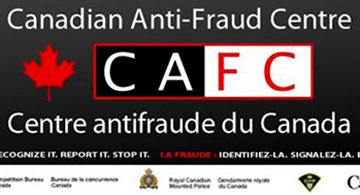Protect yourself
- However, criminals will say anything to part you from your hard-earned money.emember, legitimate telemarketers have nothing to hide
- Be cautious. You have the right to check out any caller by requesting written information, a call back number, references and time to think over the offer.
Legitimate business people will be happy to provide you with that information. After all, they want the “bad guys” out of business too. Always be careful about providing confidential personal information, especially banking or credit card details, unless you are certain the company is legitimate. And, if you have doubts about a caller, your best defence is to simply hang up. It’s not rude – it’s smart.
If you’re in doubt, it’s wise to ask the advice of a close friend or relative, or even your banker. Rely on people you can trust. Remember, you can Stop Phone Fraud – Just Hang Up!
It sounds too good to be true
You’ve won a big prize in a contest that you don’t recall entering. You’re offered a once-in-a-lifetime investment that offers a huge return. You’re told that you can buy into a lottery ticket pool that cannot lose.
You must pay or you can’t play
The caller asks for all your confidential banking and/or credit card information. Honest businesses do not require these details unless you are using that specific method of payment.
You must give them your private financial information
“You’re a winner!” but you must agree to send money to the caller in order to pay for delivery, processing, taxes, duties or some other fee in order to receive your prize. Sometimes the caller will even send a courier to pick up your money.
Will that be cash… or cash?
The caller asks for all your confidential banking and/or credit card information. Honest businesses do not require these details unless you are using that specific method of payment.
The manager is calling
Often criminal telemarketers ask you to send cash or a money order, rather than a cheque or credit card. Cash is untraceable and can’t be cancelled. And, crooks also have difficulty in establishing themselves as merchants with legitimate credit card companies.
The caller is more excited than you are
The person calling claims to be a government official, tax officer, banking official, lawyer or some other person in authority. The person calls you by your first name and asks you a lot of personal or lifestyle questions (like how often do your grown children visit you).
The stranger calling wants to become your best friend
Criminals love finding out if you’re lonely and willing to talk. Once they know that, they’ll try to convince you that they are your friend – after all, we don’t normally suspect our friends of being crooks.
It’s a limited opportunity and you’re going to miss out
If you are pressured to make a big purchase decision immediately, it’s probably not a legitimate deal. Real businesses or charities will give you a chance to check them out or think about it.
I suspect that a relative or friend is being targeted by unscrupulous telemarketers. What can I do?
Watch for any of these warning signs
- A marked increase in the amount of mail with too-good-to-be-true offers.
- Frequent calls offering get-rich-quick schemes or valuable awards, or numerous calls for donations to unfamiliar charities.
- A sudden inability to pay normal bills.
- Requests for loans or cash.
- Banking records that show cheques or withdrawals made to unfamiliar companies.
- Secretive behaviour regarding phone calls.
If you suspect that someone you know has fallen prey to a deceptive telemarketer, don’t criticize them for being naïve. Encourage that person to share their concerns with you about unsolicited calls or any new business or charitable dealings. Assure them that it is not rude to hang up on suspicious calls. Keep in mind that criminal telemarketers are relentless in hounding people – some victims report receiving 5 or more calls a day, wearing down their resistance. And, once a person has succumbed to this ruthless fraud, their name and number will likely go on a “sucker list”, which is sold from one crook to another.


